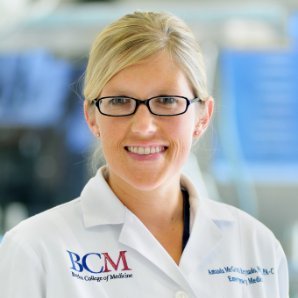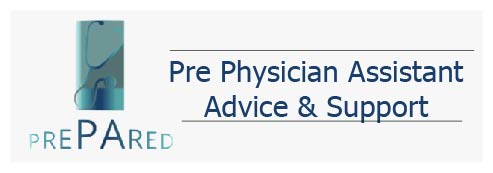A Day in the Life: ER Physician Assistant
ER/Admin PA
UTMB Galveston, 2010

1. What is your specialty? Where do your work?
I am an Emergency Medicine Physician Assistant at Ben Taub General Hospital in Houston, TX. We are one of two Level 1 Emergency Centers (EC) in the city and service Harris County and outskirts. I am the Lead PA in the EC, specifically the Director of Advanced Practice Provider (APP) Operations. I have been practicing for 8 years.
2. What is a typical day like?
I work both clinically and administratively. Clinical days are like everyone else. We work shift work in the EC, and function off of a monthly schedule for different sections of the EC. BTEC is a Level 1 Trauma Center at Houston’s largest county hospital, and we care for cases ranging from primary care needs to blunt and penetrating trauma. We serve a multitude of immigrants and refugees, and work in creative ways to serve a large patient population with limited resources.
Since I’m the Director of APPs, I am the manager of all APPs and responsible for scheduling, HR issues, managerial tasks, faculty retention, clinical productivity, quality assurance/improvement, etc. I work closely with the Department Chief and Medical Directors on the Operations team aiding in practice changes, positive relations among faculty, compliance with regulatory agencies, etc for the department. The day to day consists of meetings and fielding communications from faculty for needs (especially scheduling).
With Emergency Medicine, we owe a total number of annual hours to the college (our employer). We break that up into monthly hours that averages out (give or take changes some months). It varies, but average 36-45 hours a week. It is variable on the month, holidays, and colleagues taking vacation (i.e. if a lot of people are out, you work more to cover but when they return you have less shifts). We also have sick call, where you are on call that day but not actually scheduled. We are open 24/7, so everyone shares in weekday, weekend and night shift responsibility. There aren’t specific days we work.
3. What attracted you to your particular specialty originally?
I shadowed an Emergency Medicine PA prior to school and loved the EC. I also favored it during PA school. It takes a certain type of personality to work in the EC, with difficult patient populations and high stress scenarios. I naturally gravitated toward the environment and acute care. I also enjoy the diverse interactions and pathology. I did not want continuity of care or out-patient medicine.
4. What do you find most interesting about your current specialty?
I feel like EM PAs are well-rounded and very flexible. Every patient encounter is unique and mysterious. You see all ranges of medicine in any given shift, and seem to have a surprise behind every door/curtain. PAs are also well-respected in my EC due to our work along-side physicians and residents.
5. What special skills are required? Skills you learn once you were hired?
Emergency Medicine requires a higher skill set due to it being acute care and a wide variety of medicine. Providers have to be experienced in multiple fields and also trained in procedures.
I do not hire APPs without two years of EM experience or a PA Fellowship due to the fast-paced environment and acute setting of our field. We have an Emergency Medicine PA fellowship that has a rolling admission , train new graduates for 1 year, and then hire out of once they’re more equipped to practice.
6. What do you like most about being a PA?
I enjoy the flexibility of the profession and the autonomy of my field. I have the privilege of seeing my own patients with little supervision unless I request help. I love Emergency Medicine because it is shift work, and not structured business hours. I also enjoy being part of the care team, and making decisions on behalf of my patients and carrying them out.
7. What are the challenges of your particular specialty?
I feel the challenges are mostly with politics and hospital administration/budget restraints. This is not specific to PAs, but providers and faculty in general. As a department, you have large goals but have to fit practice initiatives and throughput within budgetary restraints.
8. Any other advice you’d like to share?
- Study and prepare during your PA education to be a well-rounded provider. You are studying and learning to practice medicine, not to pass your tests.
2. Practice your procedures.
3. Learn the business of medicine. It is great to be idealistic and passionate, but a lot of medical practice in the U.S. is directed by cost and practice restraints.
4. Choose a practice field that suites your personality and thrive in it.
5. Stay true to your ideals and your belief systems throughout your career.
6. Listen to your patients.
7. Send follow up Thank You cards or emails to your preceptors, interviewers, and educators. This still goes a long way.







